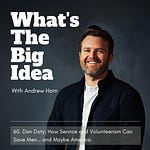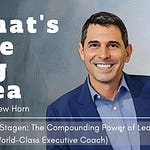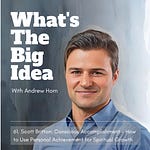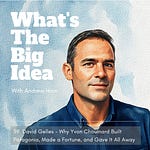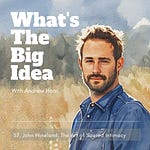Carl is the founder of NLP Marin and one of the original voices behind what is now calls Transformational NLP — A powerful approach to change that isn’t about hype or hacks, but about real, sustainable growth. For more than 40 years, Carl has been exploring a core question: why do humans struggle to change, even when we deeply want to? His answer isn’t about willpower or mindset tricks, it’s about the way the brain protects us, and how those protective patterns quietly become limitations.
So, what is Transformational NLP?
At its heart, NLP (Neuro-Linguistic Programming) is about noticing and shifting the way we think, speak, and act. Transformational NLP goes a layer deeper. It helps you understand the unconscious safety structures running beneath your behavior—often formed in childhood, and gives you practical tools to re-pattern them. Instead of trying to force change from the outside, it works with your inner system to gently create more space, more choice, and more peace.
This episode is a masterclass in how that works.
Carl breaks down how early emotional patterning continues to run our adult lives, often without us realizing it. He explains why internal conflict isn’t a failure of discipline, it’s your brain’s old wiring doing its job a little too well. Most importantly, he shares how we can work with that wiring, not against it, to create real change.
This isn’t just theory. It’s practical, grounded, and immediately usable.
Listen to What’s The Big Idea on your preferred platform below:
In this episode, we explore:
Why every behavior, no matter how dysfunctional, serves a positive intent
How the brain never unlearns, but can be re-patterned with the right inputs
Why fighting your resistance rarely works, and what to do instead
Carl’s “Select-O-Matic” metaphor that explains how we choose (or don’t)
What makes Transformational NLP different from traditional performance-based NLP
The role of identity and safety in lasting change
Carl also shares the backstory of NLP, how it began as a powerful tool for transformation, but was later co-opted for persuasion and performance. His work brings it back to its original intention: helping people build deeper rapport with themselves, others, and the truth of their lived experience.
Why this episode matters:
If you’ve ever felt stuck in patterns you can’t talk your way out of, this is for you. Carl offers a more compassionate, intelligent lens: real change doesn’t come from pushing harder. It comes from understanding the mechanics of how you’re wired and offering your system new, better-feeling options.
3 Key Shifts from Transformational NLP:
From controlling yourself → to connecting with yourself
Resistance is not the enemy—it’s trying to help. Understand it, and it will soften.From fixing behavior → to changing programming
New habits don’t stick unless you update the deeper patterns beneath them.From effort → to access
It’s not about trying harder—it’s about having more choice on your internal menu.
Favorite moments:
The “eye movement” moment—how the brain retrieves past emotional states
Carl explaining how stress in a team meeting might actually be your four-year-old self trying to stay safe
Why most high-performing leaders aren’t driven, they’re overcompensating for ancient wiring
And the line that stayed with me: “We are not designed to be defeated, at least not by ourselves.”
Resources mentioned:
NLP Marin – Carl’s school for Transformational NLP
Core Competencies Training – Their foundational program, now enrolling
The Work by Byron Katie
Robert Dilts’ Levels of Change framework
If this conversation helped you see something differently, send it to someone who’s been wrestling with the same thing. As Carl reminds us, we’re all doing the best we can with what’s on our internal menu. The work is about expanding that menu, gently, intentionally, and with love.
We loved creating this show, we hope you loved listening to it.





